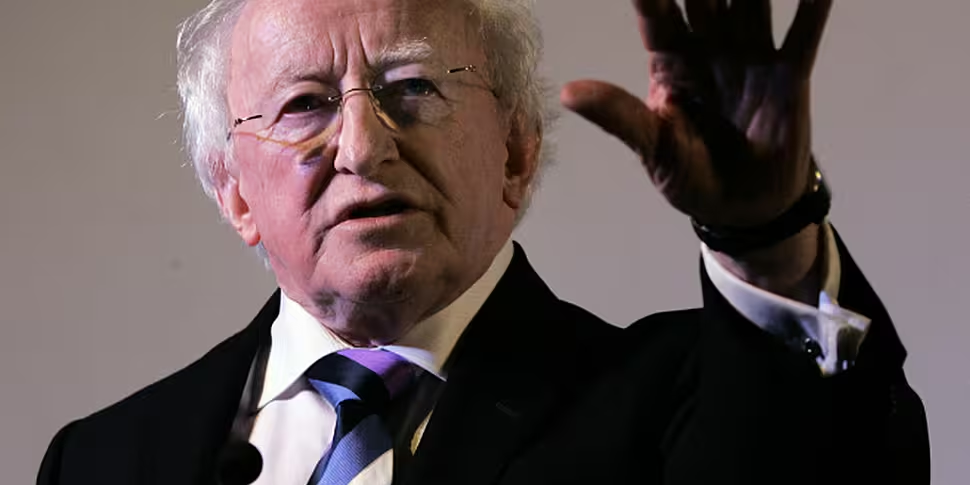The election isn’t even called and already we have the first potential controversy of the campaign with President Michael D Higgins’ questioning of political parties’ emphasis on tax cuts.
The President’s role in Irish politics is a non-executive, non-ceremonial one (albeit with a couple of important powers, in particular relating to the dissolution of the Dáil).
And while the constitution doesn’t place any restrictions on his or her public utterances, there is an expectation that the President should remain above politics.
The President did go out of his way to stress in his remarks that he could not comment “on the platforms of the parties that will contest the election”.
However, the difficulty is that his question as to whether it was “possible to have a decent society and at the same time continue to lower taxes...” has been seized upon by the Social Democrats as ‘reinforcing’ its “core message”.
The party is the only one that has set its stall out against any changes to the tax system. One Social Democrat candidate tweeted that, while the president was above party politics, “this is very close to a SocDems endorsement for #ge16”.
A statement from co-leader Roisin Shortall welcomed Higgins’ “intervention on the eve of the election”, adding: “This timely reminder by the president only reinforces the Social Democrats’ core message that the choices we make now in this election will define us a nation for decades to come”.
Constitutional law expert from Trinity College Dublin, Eoin O’Dell doesn’t believe there is a constitutional issue, saying the president had not crossed a constitutional line.
While this undoubtedly is true – the constitution is actually quite vague in this area - the statement from the Social Democrats means that the president has been brought into the election campaign.
It’s not the first time that the president has raised eyebrows with comments that could be perceived to be political. But the wisdom of making his comments on the eve of an election is questionable.
For the past forty years successive governments have bitten their tongues when presidents have acted in a way that they might privately have regarded as going beyond their powers. The chastening experience of the Fine Gael and Labour coalition in 1976 - when one of its ministers publicly criticised Cearbhall Ó Dálaigh, resulting in the then President resigning from office – lives long in the political consciousness.
It was seen as a factor in the hammering the National Coalition took in the following year’s general election. Governments since have known that you tackle the president at your peril. The President is always right, even if you think he or she was wrong.
That would have ensured the President’s comments on taxation would have gone unremarked upon. However, the move by the Social Democrats to associate with those comments may force a response from the Government parties in particular.
With the President due to head off on holidays shortly, it might quickly fizzle out but you never know. Watch this space.









